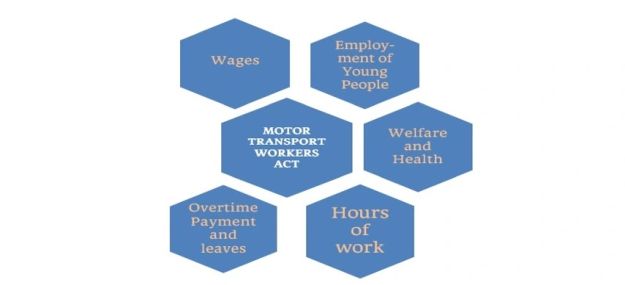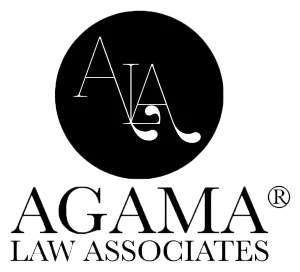As a newly found transport company, have you also wondered whether the Motor Transport Workers Act applies to your organization? Are you, as a team of entrepreneurs, also uncertain whether the definitions within the Act include your company too? In this article, we shall look at the major definitions within the Motor Transport Workers Act and understand the specifics within by reviewing different case studies and examples guiding your way through.
Basic Connotations
This article tries to portray the real definition of the term "Motor Transport Undertaking" and the term "Motor Transport Workers" and goes on further to elaborate the said definition, and to assist the companies to take a reasoned view so as to determine the applicability of the Act; and take certain necessary steps to comply with the said Act.
The Motor Transport Workers Act, 1961 was formed with the goal to provide welfare to the motor transport workers and to regulate their working conditions as mentioned under the Act. The main provisions of the Act pertaining to the Motor Transport Workers, 1961, interalia relates to:

Applicability
The Act stands applicable to the entire nation and specifically to any motor transport undertaking that has employed more than 5 or more motor transport workers. As per Section 2 (g) of the Act, a motor transport undertaking has been defined as "a motor transport undertaking engaged in carrying passengers or goods or both by road for hire or reward and includes a private carrier." The definition of the motor transport undertaking and the motor transport worker is one that stays in the shadows by not providing the interpreters the right understanding of the definition. Similarly, Section 2 (h) of the Act defines the motor transport workers as "a person who is employed in a motor transport undertaking directly or through an agency, whether for wages or not, to work in a professional capacity on a transport vehicle or to attend to duties in connection with the arrival, departure, loading or unloading of such transport vehicle and includes a driver, conductor, cleaner, station staff, line checking staff, booking clerk, cash clerk, depot clerk, time-keeper, watchman or attendant, but except in Section 8 does not include:
- Any such person who is employed in a factory as defined in the Factories Act,1948
- Any such person to whom the provisions of any law for the time being in force regulating the conditions of service of persons employed in shops or commercial establishments apply."
Both definitions mentioned above, lay down a core piece of the by defining the most crucial elements of the Act.
Interpretation of undefined definitions
In order to understand the true meaning of these definitions it is essential for interpreters to break down the definition and understand the true meaning of them through judicial precedents.
In Agra Electric Supply Co. Ltd v/s Assistant Labour Commissioner the Allahabad High Court faced for the very first time a question upon the understanding of the Motor Transport Workers Act. The Petitioner carried out a business of generating, distributing, and selling electricity throughout the city and owned 4 motor vehicles that had been registered under the Motor Vehicles Act, 1939. He also hired 7 workers for effective functioning of these vehicles. These motor vehicles were used for transporting goods from one place to another, that in no way contributed to the petitioner's business of generating electricity. The Respondent on the other hand, held a staunch belief that even though the motor vehicles have been registered under the Motor Vehicles Act, the vehicles and the persons employed under the Act must also be held to be employed under the Motor Transport Workers Act and all provisions under the said Act should be applicable to said Petitioners. The Court illustrated in their judgement that the Act has not clearly defined the term "Undertaking", but the word has been held to define "any business or any work or project which one engages in or attempts as an enterprise analogous to business or trade". Therefore, the four motor vehicles owned by the petitioner and the ten workers employed by him could have constituted for the petitioners undertaking to be a motor transport undertaking, if it would have been found as critical and necessary ingredient of the definition that those motor vehicles were carrying passengers or goods for hire or rewards. In this particular case, the workers were not doing the work for hire or reward. The motor vehicles that were used by the petitioner's company were used only for the purpose of facilitating the business, and not directly contributing towards the profit and loss of the business. The workers, too, were employed in the nature of the machine labour. Therefore, if the transport of the goods through these motor vehicles was one of the main purposes of the company that directly affected the sales and profits of the company, then the petitioners company could have been deemed to be called a motor transport undertaking.
In another striking judgement, in the case of District Executive Officer v/s State of Kerala, the Court expanded the definition of the motor transport undertaking by explaining the essential term "private carrier". The Honorable Court in one of their illustrations stated that a school bus, for instance, could not be held as a motor transport undertaking, even though it might seem as per the definition that it could be covered under "carrying passengers or goods or both by hire or reward and also includes a private carrier". The Court further stated that for obvious reasons, a school bus would not constitute as a motor transport undertaking since even though educational institutions are transporting students and staff from the institution and back, they cannot be said to have been covered under the Act. The Court held their view that the transport of students to and from the institution and back to their homes shall not constitute the school to be a motor transport undertaking. Every undertaking shall be identified as per their main object and activity, and there can be absolutely no doubt that as a school or an educational institution the main object of the school is to impart education. Helping the students and faculty travel to and from the school is a part of their activities, but in no way shall contribute directly to the main objective of imparting education. In no way can the services of transport, supply of book, uniforms, and food be inculcated as the main objective of the school which is why the court stood firm on their ground of defining a motor transport undertaking in its true sense.
In Sum
The Motor Transport Workers Act was indeed formed with a view to look after the welfare as well as working condition of the workers and undertakings covered within the ambit of this Act. Hence, it is essential for undertakings and institutions to understand whether they have been covered within the Act.
While the four Codes have been introduced to consider workmen and employment issues and consolidate ancient legislations, it would be really prudent to consider bringing this Act within an ambit of the Code to extend drivers similar benefits under the Code and avoid overlapping legislation.
References
"Motor Transport Workers Act" [Act 27 od 1961 amended up to Act 61 of 1986] [20th May 1961] (last accessed 23rd June, 2022)
Labour Commissioner of Delhi [Government of NCT of Delhi] https://labour.delhi.gov.in/content/motor-transport-workers-act-1961 (last accessed 20th June 2022)
1970 SCC OnLine All 122 : 1970 All LJ 1400 - Agra Electric Supply Co. Ltd v/s Assistant Labour Commissioner (last accessed on 19th June 2022)
WA.No. 835 of 2008 - "The District Executive Office vs State of Kerela" (last accessed on 19th June 2022)
The content of this article is intended to provide a general guide to the subject matter. Specialist advice should be sought about your specific circumstances.


